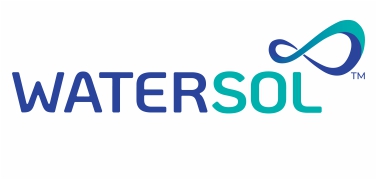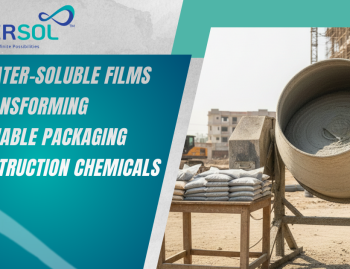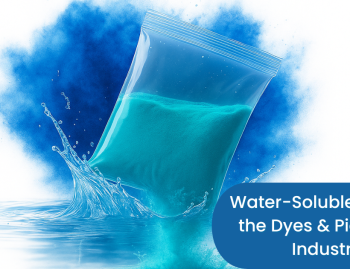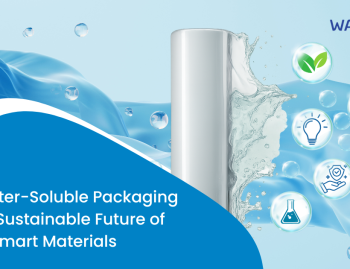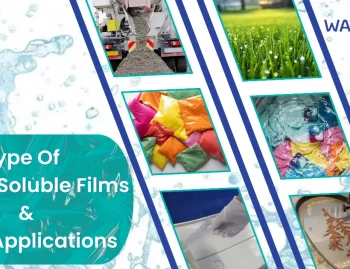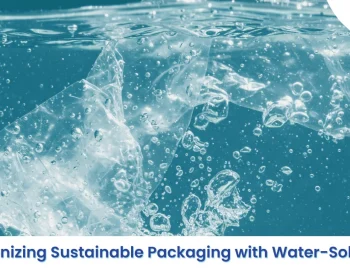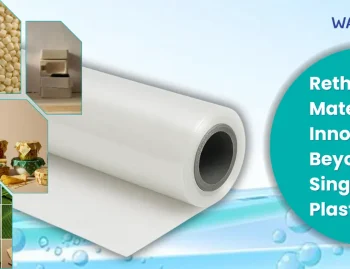
As industries accelerate toward sustainability goals and tighter regulations, packaging is under sharper scrutiny than ever. Traditional plastics face mounting challenges—from consumer backlash to complex waste-management demands.
One breakthrough solution is water-soluble packaging: films made from polymers like PVOH (polyvinyl alcohol), which dissolve completely in water, leaving no persistent residue. This format doesn’t just support environmental responsibility—it delivers measurable benefits across the value chain.
Below, we explore why packaging buyers, product managers, and R&D teams are increasingly turning to water-soluble formats.
1. Sustainability and Waste Reduction
Water-soluble packaging is engineered to disappear—literally. It prevents the buildup of long-lasting plastic waste from certain industrial and home use cases and supports circular economy goals.
- Plastic-free end-of-life: The film dissolves, eliminating secondary waste streams.
- Supports green goals: Signals a brand’s commitment to reducing single-use plastics and drives the user towards sustainability
- Consumer alignment: Eco-conscious buyers prefer packaging that’s clean, safe, and easy to dispose of.
2. Operational Efficiency
Soluble films don’t just benefit the planet—they streamline production and logistics.
- Unit-dose ready: Pre-measured pods reduce dosing errors and product waste.
- Automation friendly: Compatible with standard Fill & Pack Packaging Systems
- Compact & lightweight: Easier to store and transport than rigid plastic formats.
3. Safety and User Convenience
In sectors like healthcare, cleaning, and chemicals, safety is non-negotiable. Water-soluble packaging enhances protection without complicating use.
- No direct handling: Minimizes exposure to concentrated substances.
- Mess-free usage: Dissolves cleanly, avoiding spills or residue.
- Hygienic handling: Acts as a sealed barrier until point of use.
4. Regulatory Compatibility
Governments and agencies are pushing for safer, lower-impact packaging. Water-soluble formats align naturally with these mandates.
- Plastic reduction compliance: Meets emerging waste minimization standards.
- Safety approvals: Many films comply with food-contact and chemical safety regulations.
- Sector alignment: Agencies like the EPA endorse soluble packs in agrochemicals for safer handling.
5. Proven Across Industries
Water-soluble packaging is already transforming operations across sectors:
- Home Care: Laundry and dishwasher pods
- Agriculture: Dissolvable sachets for fertilizers and pesticides
- Healthcare: Soluble laundry bags for infection control
- Personal Care & Food: Single-use cosmetics, beverage pods, supplements
Conclusion
Water-soluble packaging is more than a trend—it’s a strategic upgrade. It balances sustainability, efficiency, safety, and compliance in one elegant solution.
For forward-thinking brands and supply chain leaders, adopting soluble film formats means:
- Reducing environmental impact
- Enhancing operational agility
- Meeting global safety standards
- Building consumer trust
